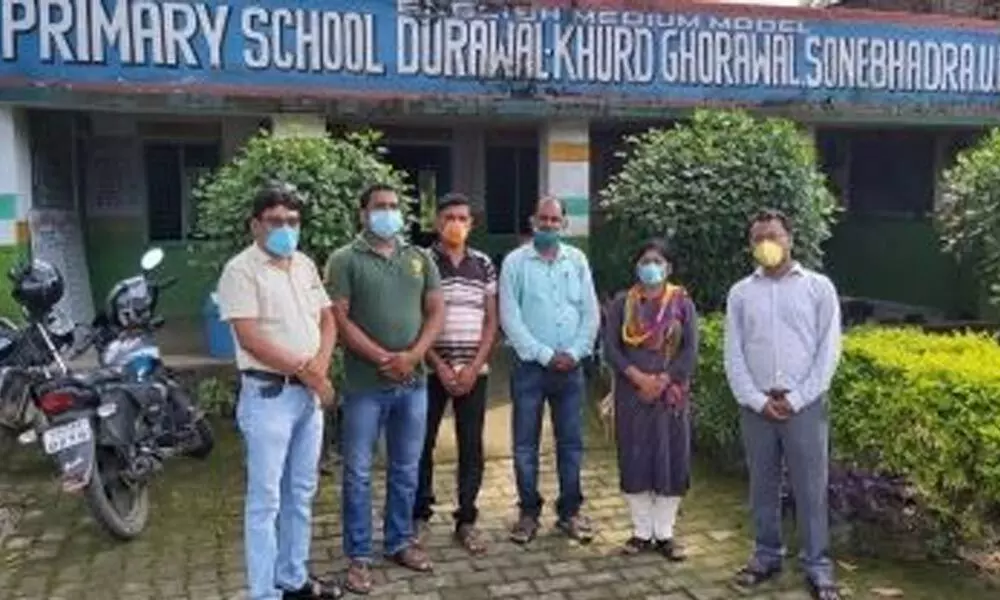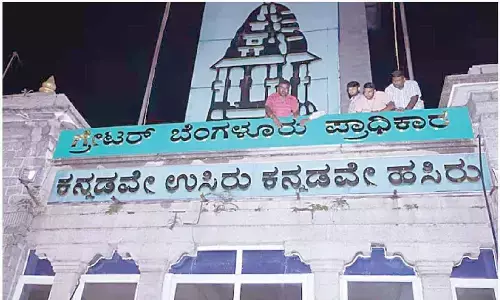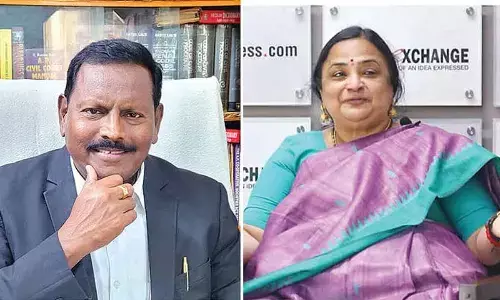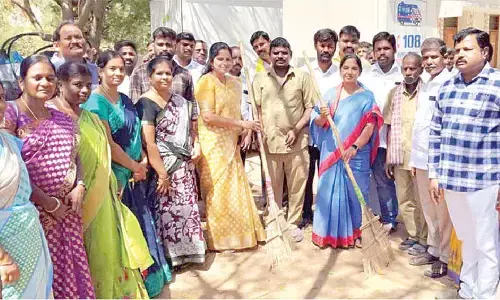Community participation helps students continue studies during pandemic

Community participation helps students continue studies during pandemic
When the lockdown was first imposed in 2020, studies came to an abrupt halt for 12-year-old Sakshi Shukla, a sixth-grader in a government English-medium primary school in Durawal Khurd village of Uttar Pradesh's Sonbhadra district.
When the lockdown was first imposed in 2020, studies came to an abrupt halt for 12-year-old Sakshi Shukla, a sixth-grader in a government English-medium primary school in Durawal Khurd village of Uttar Pradesh's Sonbhadra district. There was only one smartphone in her family, which belonged to her father. And he carried it wherever he went, meaning the phone was never available for her online classes.
Most of her classmates did not have even the one phone. The village, whose residents are primarily engaged in farming or work as labourers, also has very low internet connectivity.
So, for 11-year-old Suraj Chauhan, the lockdown and school closures left him feeling completely disconnected from his studies. No one in his family had a smartphone and there was no one around to teach him.
Initially, Suraj tried to study by himself with the textbooks he had. "But I began losing interest in my studies. I missed school where I used to study and play with my friends," said Suraj, who is now in 6th grade.
Suraj's father, Suresh (34), is a daily wage labourer and lives in a kutcha house with his family of four children, his wife and his parents. He earns around Rs 4,000 a month. "It's a village. We don't get work every day. It is tough to run a house with so little money, but I don't have a choice. How can I afford a smartphone and internet recharges monthly?" questioned Suresh.
The primary school of Durawal Khurd has about 150 students. "We had only 30 parents on our parents and teachers WhatsApp group. This shows the availability of smartphones and internet connectivity in the village," said Raj Kumar Singh, the headmaster of the school.
He explained that it was tough for them to teach the students online when the students had no way of attending online classes.
"We could have left the students disconnected from their studies, stating the reason that their families had no smartphones or internet connectivity. But, we as teachers have the responsibility to provide education to our students and help make life better for them. That is why we came up with an idea called mohalla classes," said the headmaster. These are classes conducted with the help of a few educated volunteers in the village who have smartphones, and who can be guided by the teachers.
Your friendly neighbourhood school
These classes have been hugely successful in keeping the students engaged in studies during the pandemic and the government has replicated this initiative throughout the state. With apps like Diksha and Read Along, students are now learning with ease. "The apps were launched by the government but the teachers and volunteers taught us how to use them for studies, which was very helpful. Now we learn various stories, poems and other things from the apps," said a happy Sakshi.
For the mohalla classes, the teachers of the school found a few educated people from the village who had smartphones and internet connectivity. The primary school teachers trained 10 such volunteers, including women, from the village.
Kamlesh Kumar, who is a teacher in the school said that the volunteers, also known as Prerna Sathi or 'inspiration partner', have all at least passed their intermediate exams. The teachers trained them to teach the students and also guided them to follow Covid safety protocols. The teachers also created nine locations or centres where the students and the mohalla class teachers gathered for studies.
"We would share online study materials to these trained volunteers and they, in turn, taught the students for at least one hour every day, in the mohalla classes. We made sure that social distancing was followed, masks were worn and sanitiser use was practised during the mohalla classes. Even the school teachers would visit the village's mohalla class centres to teach the students," explained Singh.
Overcoming reluctance
Initially, when the volunteers tried to convince students to join a mohalla class, there was reluctance. "The idea was not appreciated as something special or unique. Moreover, parents were scared that the children could get infected by the coronavirus. But when they soon saw students gathering one by one, all the students began taking it seriously and enjoyed the mohalla class sessions," said Seekha Shukla, a 32-year-old Bachelor of Arts graduate and a mother of two who is one of the mohalla class volunteers.
Initially, even the volunteers were scared of infections. "But if we would not come forward, who would teach the children from families that did not have smartphones? Moreover, we were following all Covid safety protocols," said Shukla.
"Disconnection from education, even if it is for three to four months, can make children forget what they have learnt. Imagine how much they would have lagged behind if they were not engaged in education through any means," said Rajesh Kumar (30), a mohalla class volunteer who moved back to his village from Maharashtra before the first lockdown was imposed.











